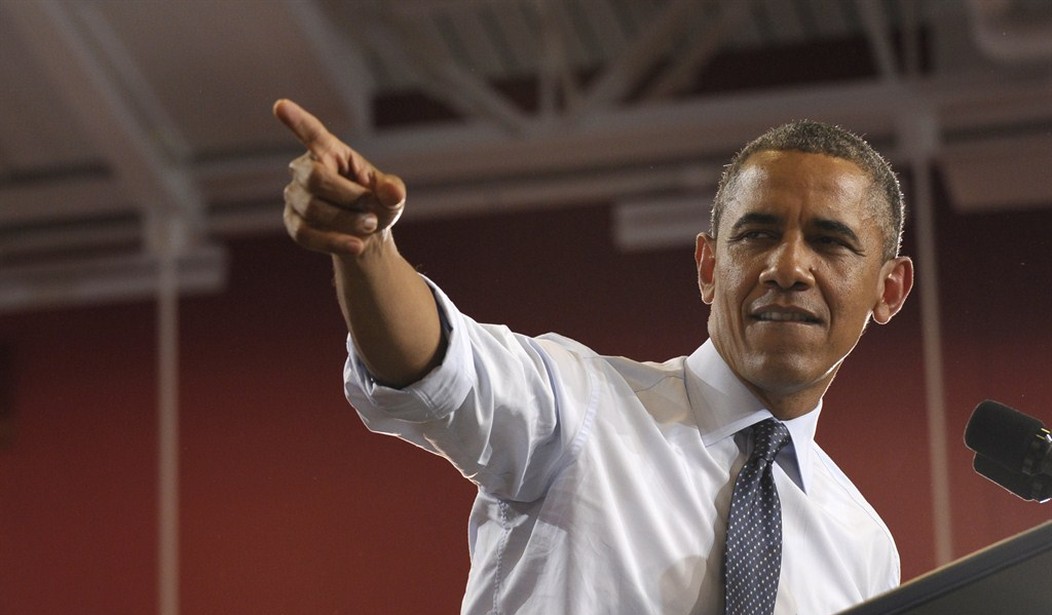Liberals got excited yesterday when a National Journal survey indicated that "only" 36 percent of Americans say Obamacare should be repealed. They ignored, of course, that full repeal was the the most popular option NJ polled, and that just a fourth of respondents chose to adopt the Democratic line of implementing and augmenting funding for Obamacare. The poll also showed sharp deterioration in expectations for, and approval of, the new law:
Just 35 percent of those surveyed in the new poll said they believed the law will benefit “people like you or your family,” while 46 percent expected it would make things worse for them. That’s a decline from last September, when 43 percent expected improvement and 40 percent anticipated harm. Two other measures found even greater slippage. Just 36 percent of those surveyed say the law will “make things better” for the middle class, while 49 percent say they expect it will “make things worse.” That’s another steep decline from September, when 45 percent said it would help, and 40 percent said it would hurt, the middle-class...Ominously for the White House, the survey found that hesitation is widespread even among the portions of the white community usually most receptive to Democrats. Only about one-third of whites ages 18-34 said they believed the law would benefit the middle class, the country, or their own families. Similarly just 29 percent of college-educated white women thought the law would personally benefit them and only 35 percent thought it would help the middle class...
MKH also drove home a point I made in passing about the latest WaPo/ABC News poll; namely, that support for Obamacare among moderate and conservative Democrats has dropped off considerably since passage. Now the New York Times and CBS News have released yet another national survey cementing the public's dim view of the "Affordable" Care Act:
Recommended
According to the poll, 36 percent of Americans want Congress to expand or keep the health care law while 39 percent want Congress to repeal it - the highest percentage seen in CBS News polls. The poll also found a majority of Americans - 54 percent - disapprove of the health care law, 36 percent of Americans approve of it and 10 percent said they don't know about it. The health care law is a chronic issue for the White House, CBS News political director John Dickerson said on "CBS This Morning." "There's an operational part to this, which is that the White House has got to get people to sign up for these health exchanges, particularly younger, healthier Americans, and so they are tactically running a campaign much like the presidential campaign, reaching out, using the techniques of that campaign to get younger people to sign up for these health exchanges." Dickerson said, "The feeling, basically, is, again, speeches are not going to change public opinion; this has got to start taking hold. The poll also found just 13 percent of Americans say the health care law will personally "help me" while 38 percent said they believe the law will personally "hurt me."
By nearly 20 points, Americans disapprove of the law, while a paltry 13 percent expect the president's signature accomplishment to benefit them personally. Among the 38 percent plurality who anticipate Obamacare-related pain, undoubtedly, are workers who face effective pay cuts thanks to the law. The Washington Post profiles one of Obamacare's "unintended" victims:
For Kevin Pace, the president’s health-care law could have meant better health insurance. Instead, it produced a pay cut. Like many of his colleagues, the adjunct music professor at Northern Virginia Community College had managed to assemble a hefty course load despite his official status as a part-time employee. But his employer, the state, slashed his hours this spring to avoid a Jan. 1 requirement that all full-time workers for large employers be offered health insurance. The law defines “full time” as 30 hours a week or more.“We work so hard for so little pay,” he said. “You would think they would want to make an investment in society, pay the teachers back and give us health care.” This month, the Obama administration delayed the employer insurance requirement until January 2015. But Virginia, like some other employers around the country that capped part-timers’ hours in anticipation of the initial deadline, has no plans to abandon its new 29-hour-a-week limit.The impact on Pace and thousands of other workers in Virginia is an unintended consequence of the health law, which, as the most sweeping new social program in decades, is beginning to reshape aspects of American life.
Stories like these are playing out across the country, which might help explain why a majority of Americans continue to oppose the law. Or perhaps it's the broken promises, rising premiums, embarrassing delays, fraud concerns, and unaffordable price tag. CBS quoted analyst John Dickerson above, who counseled the White House that a steady diet of "more speeches" isn't going to move the needle on this issue. The same could be said on the economy -- especially when there's no new plan to be sold. So what's up next? More speeches, of course, chock full of of blame-shift (this is year five of his presidency) and underwhelming attempts at soaring rhetoric that sound as if they were penned by a marginally precocious high school freshman:
Ends hourlong speech calling on Americans to set our eyes on the horizon search for an ocean of tomorrows, a sky of tomorrows.
— Mark Knoller (@markknoller) July 24, 2013
Deep, man.

























Join the conversation as a VIP Member